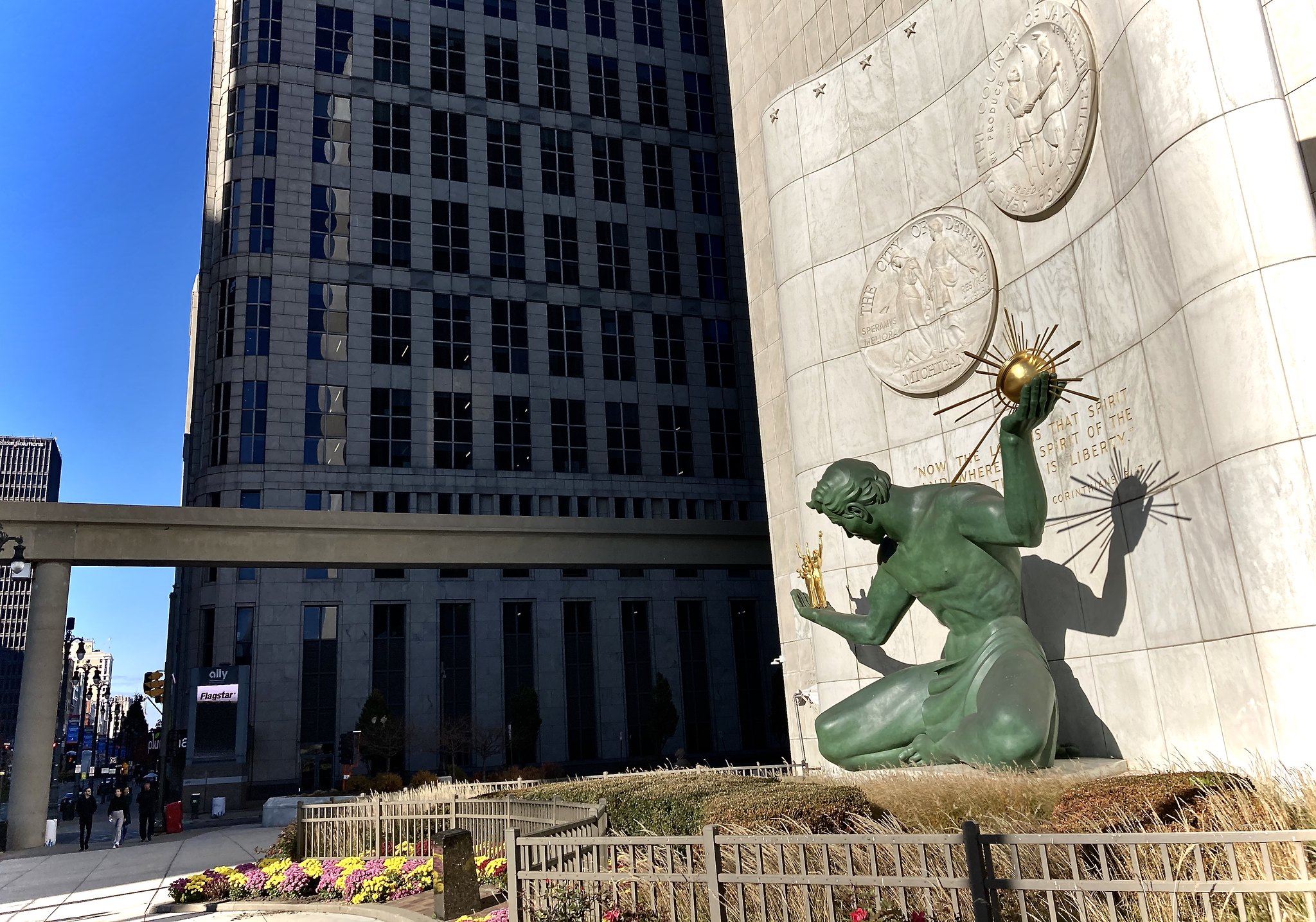In April of 2020, I began to use the word “adjusting” on a daily basis. I was administering rapid COVID-19 tests at the Detroit Health Department and while their tests were processing, I had fifteen minutes to talk with patients about how they were adjusting to social distancing and adjusting to the media storm that occupied our screens all day.
People arrived at the testing center with cracked hands from repeated washing, hoping that the scientists in these towering midtown medical buildings would have some key to unlock the secret of staying healthy during a pandemic. And there I was, a medical student hidden behind a face shield and an N95, their sole human contact with the city’s COVID-19 response, and I couldn’t come close to fixing anything; the best I could do was talk with them about “adjusting.”
Months later, when I had returned to clinical rotations and conversed with patients about their recent stroke, COPD exacerbation or other non-pandemic-related health needs, my words felt eerily similar. It became clear that the language that I utilized regarding the pandemic — language which focused on adjusting to problems rather than providing reassurance that a miracle cure was on the way — will shape the way I speak to patients throughout my clinical career.
People are understandably frustrated with the danger and inconvenience brought about by COVID-19, and at first, discussing how we can adjust by hand washing, social distancing, wearing masks and following other guidelines may seem like a lame excuse for advice. Modern medicine is supposed to be a lot more glamorous than, “Don’t touch your eyes.” Shouldn’t there be a vaccine or fix-all drug by now? How is it possible that our lives can be so drastically interrupted by something like this when the world has invested so much money and brainpower into understanding health and disease?
I heard comparable frustration from a patient with chronic back pain who was irritated by his extended hospital stay and slow progression: “This is the twenty-first century. We have all these fancy machines everywhere, I see at least five doctors per day, and still no one has come up with a solution for this pain.”
I think that this frustration comes in part from our society’s overestimation of what modern medicine can accomplish — expectations which are perpetuated every time we sensationalize a breakthrough finding or treatment. Our culture promotes the narrative that there are easy fixes to our bodily issues, the idea that a doctor can remedy any problem by waving their pen to prescribe the perfect pill or waving their scalpel to perform the perfect surgery. Patients are far less likely to hear that most effective treatments require inconvenient changes to daily life or that medications and surgeries bring hassles of their own.
As providers, our reflex is to reassure patients that everything will be okay after treatment and to defer messy conversations about challenges that will persist throughout recovery. However, when we ignore the reality that there is rarely a “silver bullet” cure or neglect to emphasize that healing can be a demanding process, we do a disservice to our patients. We must acknowledge that medicine does not have all the answers and that no matter how advanced our field becomes the chronic management of many medical conditions is labor-intensive and inconvenient.
Medical interventions do not replace hardship with tranquility, but rather the danger of un-managed disease with the challenge of treatment and recovery. It is appropriate to celebrate our successes when breakthroughs happen, but we do society no favors by perpetuating myths of “easy living” under the security blanket of modern medicine; instead, in the midst of providing care, doctors should encourage patients to face adversity, not ignore it.
On one occasion during my neurology rotation, a stroke patient with right arm and leg weakness wanted to know when her functioning would return to normal. Unfortunately, when we considered the onset and progression of her symptoms, it was clear that she would have permanent deficits. Although we could not reassure her that her life would return to “normal,” we could help her relearn to brush her teeth, get dressed and get around safely; with the help of an interdisciplinary medical team, she was able to adjust to a new reality.
Doctors can manage diabetes or replace a knee, but patients still must adjust to the new realities of a changed lifestyle, daily medication or surgical scars. There are precautions people can take to reduce the risk of injury or slow the progression of disease, but there are no revolutionary cure-alls that keep us healthy forever. However, what physicians can do is partner with patients and guide them through adversity — not by waving a wand and fixing everything for patients, but by working with them to help them adjust.
In Detroit, where early infections and deaths from COVID-19 were more than just numbers on a graph, but rather a widespread shared experience, it was strange to talk about this pandemic as something to which everyone should simply “adjust.” Eight months later, this remains the most sincere encouragement I can provide. Still, I continue to repeat this message because the alternative to adjustment is despair, succumbing to the belief that life will never be fun or safe or shared again.
Adjusting to a new reality — be it an environmental hazard or individual disease — does not require us to put our lives on hold; we can view our challenges realistically and choose to respond with courage rather than despair. Living amidst a pandemic demands that we change habits, find new ways to connect with people, and be creative in how we show kindness and cultivate hope. In spite of this adversity, we continue to adjust and grow.
Image credit: Spirit of Detroit (CC BY-NC-ND 2.0) by moentmannm

